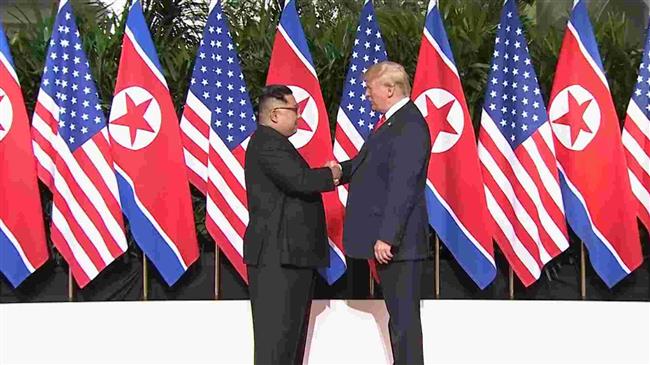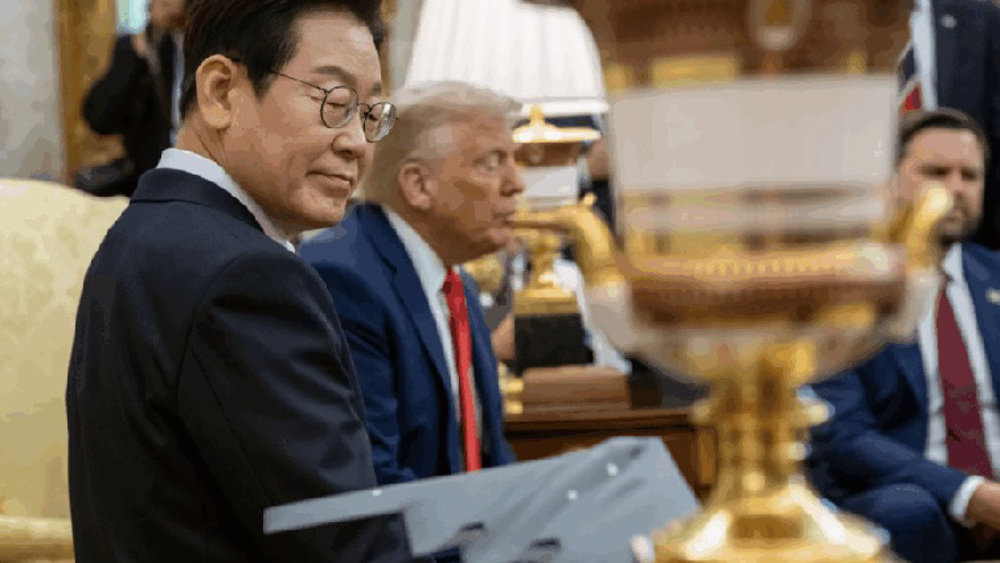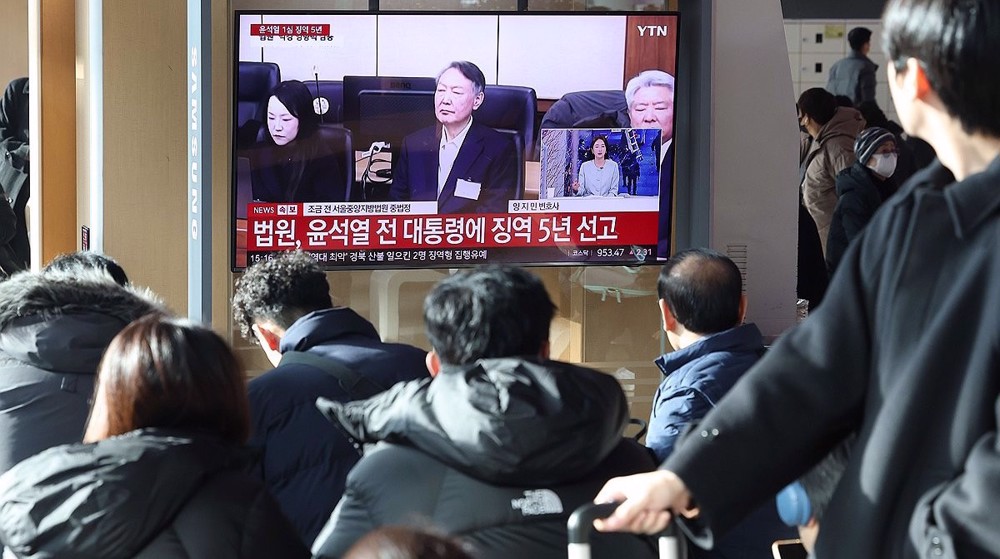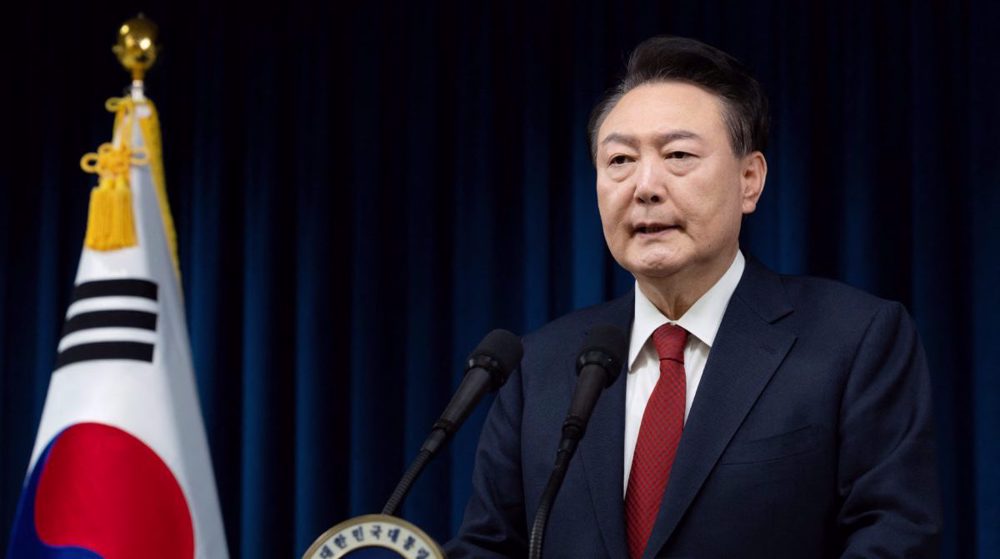North Korea warns US as China, Russia back Pyongyang
China says it has sternly protested to the US for imposing sanctions on a tech firm which Washington accuses of moving illicit funding to North Korea.
Foreign Ministry spokesman Geng Shuang said on Friday China resolutely opposes unilateral sanctions and long-armed jurisdiction, adding that Beijing had lodged stern representations with Washington.
The US on Thursday imposed sanctions on China-based Yanbian Silverstar Network Technology Co, its North Korean chief executive Jong Song Hwa, and a Russian-based sister company, Volasys Silver Star,
Treasury Secretary Steven Mnuchin said the sanctions wee intended to stop the flow of "illicit revenue" to North Korea from overseas information technology workers allegedly disguising their true identities.
“China had already lodged stern representations with the US side about this, and urges the US side to stop these wrong actions,” Shuang said.
A manager at Yanbian Silverstar said the allegations were “impossible”. “I’ve never heard of Jong Song Hwa,” he told Reuters.
The administration of US President Donald Trump has maintained sanctions pressure on Pyongyang despite his meeting with North Korean leader Kim Jong Un in June at a summit in Singapore.
North Korea’s Foreign Ministry on Friday denounced a “smear campaign”, warning that it could undermine the implementation of an agreement between Trump and Kim.
The US charged and sanctioned earlier this month a computer programmer for the 2017 global WannaCry ransomware cyber attack and the 2014 cyber assault on Sony Corporation.
US federal prosecutors claimed that the programmer, identified as Park Jin Hyok, worked for a North Korean-sponsored hacking organization and conspired to conduct the attacks.
North Korea's state news agency KCNA quoted a North Korean Foreign Ministry official as saying that the person named by the US was a "non-entity."
"The act of cybercrimes mentioned by the Justice Department has nothing to do with us," Han Yong Song, a researcher at the North Korean Foreign Ministry's Institute for American Studies, said in a statement to KCNA.
"The US farce of prosecution is none other than a vicious slander and another smear campaign full of falsehood and fabrication designed to undermine the DPRK,” he said, referring to the country’s official name.
“In reality, the US is the chief culprit responsible for posing security threats in cyberspace.”
The official urged the US to "seriously ponder over the negative consequences of circulating falsehoods and inciting antagonism against the DPRK that may affect the implementation of the joint statement adopted at the DPRK-US summit."
Washington has also accused Russia of violating UN sanctions on North Korea by granting work permits to North Korean laborers despite Russia’s denial of any such actions.
US Ambassador to the United Nations Nikki on Thursday accused Moscow of seeking to cover up breaches of UN sanctions on Pyongyang by pushing for changes to a report on alleged sanctions violations.
The report was submitted to the Security Council’s North Korea sanctions committee last month, claiming that Pyongyang had not stopped its nuclear and missile programs and was violating UN sanctions on exports.
The US administration alleged that Russia had pressured the independent sanctions monitors to amend the report.
“Russia can’t be allowed to edit and obstruct independent UN reports on North Korea sanctions just because they don’t like what they say. Period,” Haley said in a statement.
Moscow has called on the UN to consider easing sanctions on North Korea in response to its opening up dialogue with the United States and halting missile tests.
However, talks between Washington and Pyongyang over the what the US calls denuclearization of the Korean Peninsula have stalled.
Trump and Kim made a broad agreement at the Singapore summit in June, but Pyongyang has denounced what it has called "gangster-like behavior" by the US since then.
Pyongyang says Washington has betrayed the spirit of the summit by making unilateral demands on the complete, verifiable and irreversible denuclearization, while putting the sanctions in place.
North Korea has been under a raft of crippling UN sanctions since 2006 over its nuclear tests as well as multiple rocket and missile launches. Pyongyang has firmly defended its military program as a deterrent against the hostile policies of the US and its regional allies, including South Korea and Japan.
Thousands of US soldiers are stationed in South Korea and Japan.
US approves sale of patrol aircraft to Seoul
On Thursday, the US State Department said it supported the sale of six Boeing Co P-8A Poseidon patrol aircraft to South Korea for an estimated $2.10 billion.
South Korea’s military said in June that it had picked Boeing to provide the country with maritime patrol aircraft.
Seoul had earlier raised the idea of purchasing new maritime patrol aircraft with stronger anti-submarine capabilities to better respond to the alleged threat of North Korea’s submarine-launched ballistic missiles.
ElBaradei condemns US threats of military action against Iran
‘No two-hour war’: Iran vows immediate retaliation to any attack
VIDEO | US warmongering threatens stability
Pezeshkian: US must end provocations if it seeks genuine diplomacy
Iran summons German ambassador over Merz’s ‘low-minded’ remarks
Iran's Armed Forces warn EU of ‘consequences’ of IRGC designation
Iran FM: EU’s blacklisting of IRGC a ‘major strategic mistake’
EU blacklists IRGC in legally flawed move irrespective of consequences
















 This makes it easy to access the Press TV website
This makes it easy to access the Press TV website